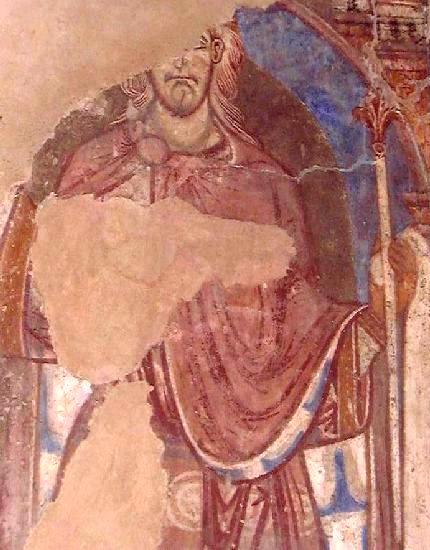|
Maserfelth
The Battle of Maserfield, () was fought on 5 August 641 or 642 (642 according to Ward) between the Anglo-Saxon kings Oswald of Northumbria and Penda of Mercia allied with Welsh Kingdom of Gwynedd, ending in Oswald's defeat, death, and dismemberment. The location was also known as ''Cogwy'' in Welsh, with Welshmen from Pengwern participating in the battle (according to the probably ninth-century ''Canu Heledd''), probably as allies of the Mercians. Bede reports the commonly accepted date given above; the Welsh ''Annales Cambriae'' is generally considered incorrect in giving the year of the battle as 644. The site of the battle is traditionally identified with Oswestry. Background "Since the death of Oswald's uncle Edwin of Northumbria at Hatfield Chase in 633, the Mercians under Penda had presented an obstacle to the power of Northumbria over the lands of Britain south of the Humber. Oswald had defeated Cadwallon ap Cadfan of Gwynedd, King of the Britons (Penda's ally at Hatf ... [...More Info...] [...Related Items...] OR: [Wikipedia] [Google] [Baidu] |
Cynddylan
Cynddylan (Modern Welsh pronunciation: /kən'ðəlan/), or Cynddylan ap Cyndrwyn was a seventh-century Prince of Powys associated with Pengwern. Cynddylan is attested only in literary sources: unlike many kings from Brittonic post-Roman Britain, he does not appear in the early Welsh genealogies or other historical sources. The son of King Cyndrwyn, Cynddylan is described in the probably seventh-century poem ''Marwnad Cynddylan'' (''Elegy for Cynddylan'') and seems to have been a chieftain in Powys. Historical context Some understanding of the historical context in which Cynddylan must have lived is afforded by Bede's ''Historia ecclesiastica gentis Anglorum'', the ''Historia Brittonum'', and early Welsh genealogies. With the collapse of the Roman Empire and the invasion of the Saxons, the remains of the civitas of the Cornovii held on to their lands in the lowland border regions of Wales (Herefordshire and Shropshire). By the beginning of the seventh century King Cystennin was ... [...More Info...] [...Related Items...] OR: [Wikipedia] [Google] [Baidu] |
Saint Oswald Durham Cathedral
In Christian belief, a saint is a person who is recognized as having an exceptional degree of holiness, likeness, or closeness to God. However, the use of the term ''saint'' depends on the context and denomination. In Anglican, Oriental Orthodox, and Lutheran doctrine, all of their faithful deceased in Heaven are considered to be saints, but a selected few are considered worthy of greater honor or emulation. Official ecclesiastical recognition, and veneration, is conferred on some denominational saints through the process of canonization in the Catholic Church or glorification in the Eastern Orthodox Church after their approval. In many Protestant denominations, and following from Pauline usage, ''saint'' refers broadly to any holy Christian, without special recognition or selection. While the English word ''saint'' (deriving from the Latin ) originated in Christianity, historians of religion tend to use the appellation "in a more general way to refer to the state of special h ... [...More Info...] [...Related Items...] OR: [Wikipedia] [Google] [Baidu] |
